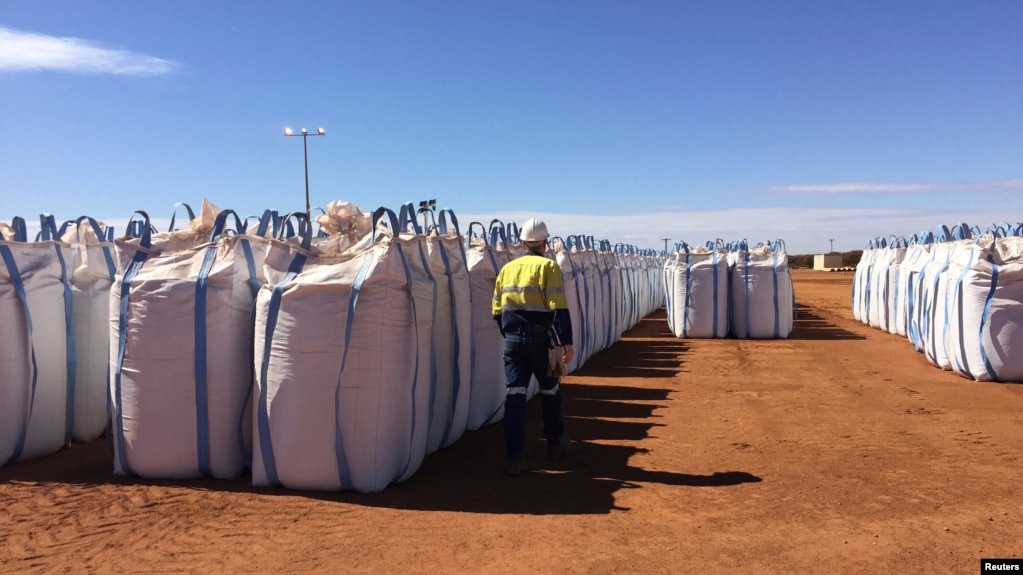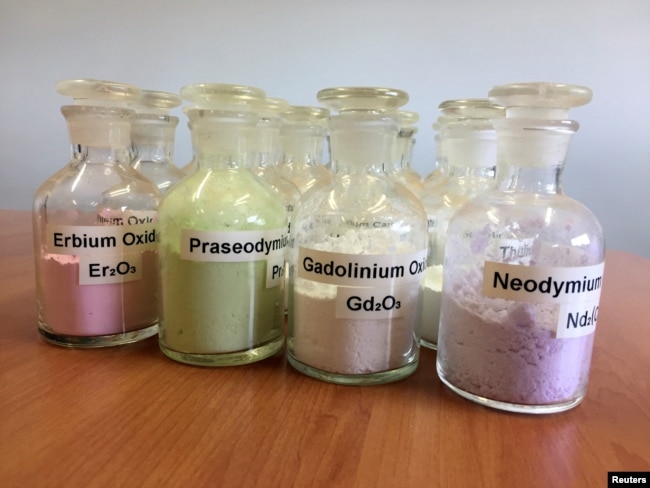AUDIO
Brazil Aims to Become Major Rare Earths Supplier

Brazil aims to become a major producer of rare earth metals as Western countries push to gain supplies needed to manufacture high technology devices.
Rare earth metals are 17 elements that are important to electronic equipment and to batteries, electricity storage devices.
South America’s largest country could become a competitor to China, which currently produces much of the world’s supply of the metals. Brazilian officials hope to move the country into the world’s top five suppliers.
Supporters of Brazil’s push say low labor costs, existing rules and being close to markets in Latin America are advantages. But currently, low prices for rare earth metals, technical difficulties and concerns from possible lenders present problems.
Supplies could grow
Brazil is believed to have the world’s third-largest supply, or reserves, of rare earth metals. Serra Verde is the country's first rare earth mine. The mine started operations this year.
Experts, business leaders and investors expect production to grow. Western governments are providing incentives.
Daniel Morgan is with Barrenjoey, an investment bank in Sydney, Australia. Speaking about Brazil’s possible rare earth supplies, Morgan said, “There have been some very meaningful discoveries made in the past couple of years.”
He added, “I do think outside of China, Brazil’s projects are the most economic greenfield projects available.” “Greenfield” normally means that the area involved is undeveloped or used only for agriculture.
Currently, the United States and its allies depend almost completely on China for rare earth metals. However, the U.S. aims to develop its own supply chain for rare earths by 2027. The goal is to provide enough materials to meet the needs of the defense industry.
China biggest producer

China produced 240,000 metric tons of rare earth-related materials in 2023. That is five times more than the U.S., the next biggest producer. China processes about 90 percent of the world’s supply to make permanent magnets, which are used in equipment such as wind turbines, electric vehicles and missiles.
Countries including Australia, Vietnam and Brazil aim to increase production, but their efforts have been slow. In Brazil, Serra Verde has taken 15 years to develop. It is expected to produce 5,000 tons of rare earths once production starts.
The company’s chief, Thras Moraitis says production could double by 2030. He said his company’s mine and Brazil have “competitive advantages” that could aid development of the rare earths industry. These include geological qualities, electricity supplies and a skilled workforce.
But, Moraitis said development “will require continued support to establish itself in a highly competitive market. Key processing technologies are controlled by a small number of players.”
Reg Spencer, an expert with investment bank Canaccord said the country could have two or three more mines by 2030.
Low prices and other problems
A barrier to getting big mining projects started has been a 70 percent drop in the price of many rare earth metals.
That means banks will be less willing to lend money for rare earth projects.
Nick Holthouse is chief of Australian developer Meteoric Resources. He said, “Getting money at the moment is tough.”
The company is aiming to make an investment decision in late 2025 for its Caldeira project in Brazil’s central state of Minas Gerais. It will produce both heavy and light rare earths. In March, the U.S. Export-Import Bank expressed interest in lending Meteoric Resources $250 million for the project.
Brazilian Rare Earths is at an early point in developing resources in the country’s northeast. The company’s chief Bernardo Da Veiga said it is much less costly to mine in Brazil compared to Australia.
Although low labor costs help developers, most countries are behind China in processing and producing rare earths. To assist developers, Brazil’s government has set aside $195 million to help finance important mineral projects including mining rare earths. The Ministry of Mines and Energy said in a statement that it wants to build an industry for creating alloys and finished products like turbines, motors and batteries.
The ministry is also considering efforts to get rare earths from recycling old equipment and parts. Such an effort might save costs on developing separate technologies and establishing a new supply chain.
________________________________________________
Words in This Story
advantage –n. something that makes success more likely
technical –adj. related to the practical use of engineering or industrial sciences
supply chain –n. a network of businesses that supply the materials and parts needed to provide people with products and goods
https://learningenglish.voanews.com/a/brazil-aims-to-become-major-rare-earths-supplier/7660908.html